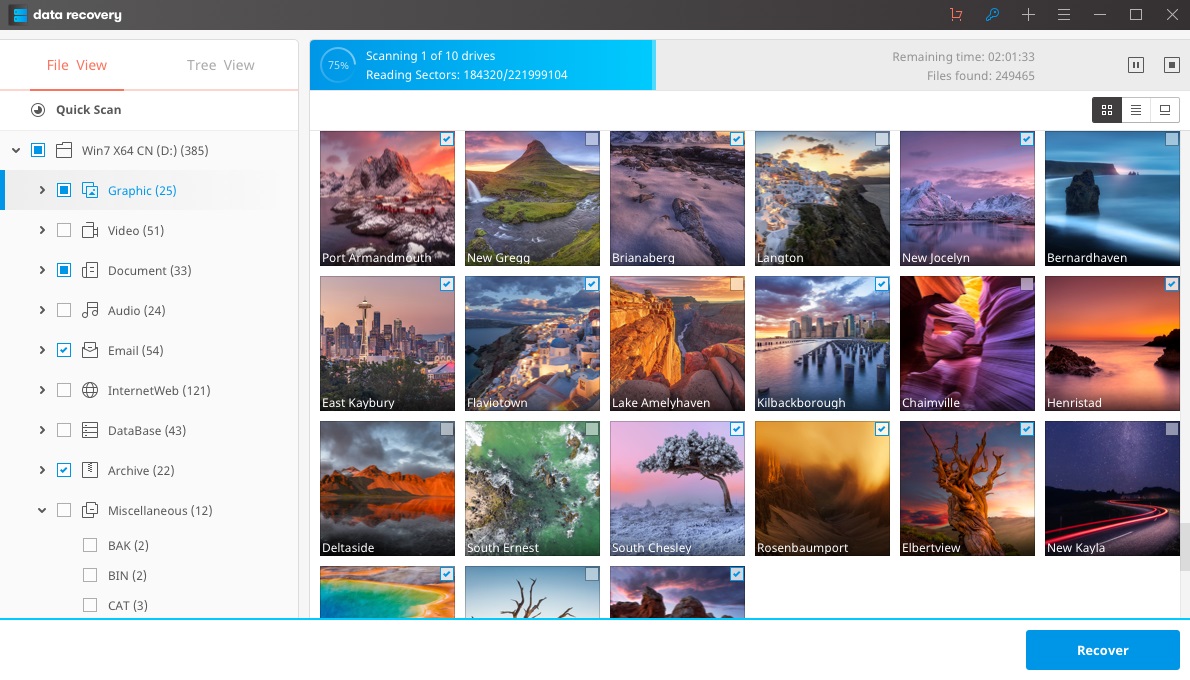The deletion of the Windows Update Files is made with the aim to gain more space into the computer's hardware, to eliminate the corrupted and outdated files. Windows Update is running in the backend with the frequency selected by the Windows user. If you have not selected a regular update, when Windows updates are available, you are notified by a notification window. Usually are transmitted information related to the size of the updates. Thus you will know how much space you need for updates.
Windows 7, or Windows 8 operating system requires 16 GB available hard disk space for the 32-bit version, or 20 GB for the 64-bit version. It is recommended to have a free space of 40 - 50 GB on the partition you intend to install Windows, in order to have enough space for updates, also.
- Why deleting Windows Updated Files
- How to delete Windows Update Files in several steps
- Tips & Tricks for deleting Windows Update Files
Part 1 Why deleting Windows Updated Files
The reasons for the deletion of the Update Files are gaining more space on hard drive, the files are corrupted and harm your computer, and one of the most important reasons is that Windows doesn't make any cleanup after itself into the system. Outdated and / or corrupted files give so many headaches, that we strongly think to give up the computer and buy another one (probably with another operating system). But we don't have to push things so far because remedial solutions exist even within the Windows operating system.
The size for the update files differ and depending on the version of Windows you have on your computer, and updates you want to do. For example, if you have Windows 8, you need 3000 MB of available space to install the 32-bit version of Windows 8.1, and 3850 MB of available space to install the 64-bit version of Windows 8.1.
Part 2How to delete Windows Update Files in several steps
You can use Disk Cleanup and the Windows Update Cleanup feature in order to delete Windows updates that you no longer need and only occupies storage that you can utilize for files you actually need.
Follow the steps below in order to cleanup Windows Update Files:
1. Open Disk Cleanup wizard
Go to Start, search after All Programs menu, click on Accessories, and after click on System Tools. The final step is to click on Disk Cleanup.

2. Run Windows Update Cleanup
The option Windows Update Cleanup is checked by default. Thus, when you use the Disk Cleanup, this tab is already ready to be used.

3. Delete the Update Files
You will be prompted with a notification windows and you must to click on Delete Files.

Part 3Tips & Tricks for deleting Windows Update Files
You are able to delete Windows Update Files by using Disk Cleanup only if you have administrator permissions. If you receive some message that you do not have this privilege, click on the right button from your mouse and select Run as Administrator.
The Disk Cleanup wizard runs in the background and you can still work on your computer. However, keep in mind that your computer will restart in most cases after the cleanup of files is done.
You should know that the Windows Update Cleanup option is available only when the Disk Cleanup wizard detects Windows updates that you do not need on the computer. Thus, even if you think that you have update files that you do not need anymore, Windows could "think" different. When you don't see that this option is available, probably you should check twice the files you consider to delete.
If you lost the data on your computer, don't worry! You still have the chance to get lost data back. To recover files from computer hard drive, you can have a try the following tool.
Recover lost data up to 550+ file types from your computer!

The Best File Recovery Software
- Recover lost or deleted files, photos, audio, music, emails from any storage device effectively, safely and completely.
- Supports data recovery from computers, hard drives, memory cards, flash drives, mobiles, digital cameras and camcorders.
- Supports to recover data for sudden deletion, formatting, hard drive corruption, virus attack, system crash under different situations.
- Supported OS: Windows 10/8/7/XP/Vista, Mac OS X (Mac OS X 10.6, 10.7 and 10.8, 10.9, 10.10 Yosemite, 10.10, 10.11 El Capitan, 10.12 Sierra, 10.13 High Sierra) on iMac, MacBook, Mac Pro etc.

Deleted File Recovery
Accidentally deleted important files without any backup and empty the "Recycle Bin"? Recover deleted files from Mac and other storage media easily and quickly.

Partition Recovery
Data loss for deleting or formatting partition mistakenly? Recover data stored on partitions that have been deleted or formatted,and even from lost or hidden partitions.

RAW Hard Drive Recovery
Restore inaccessible, hidden or severely corrupt data that is usually caused by file system damage, RAW hard drive, RAW partition or partition loss with this powerful data recovery software.
Delete / Undelete Files
- Deleted Files I-
- Deleted Files II+
- Undelete Files I+
- Undelete Files II+
-
- EaseUs Deleted Files Recovery alternatives
- Recover shift deleted files
- Undo accidental delete
- Retrieve deleted contacts
- Mac undelete
- Recover deleted folders
- Android Apps to recover deleted files
- System restore deleted files
- Recover deleted files from Android
- Recover deleted photos
- Recover deleted files from recycle bin
- Recover deleted partition
- Recover Dropbox deleted files






